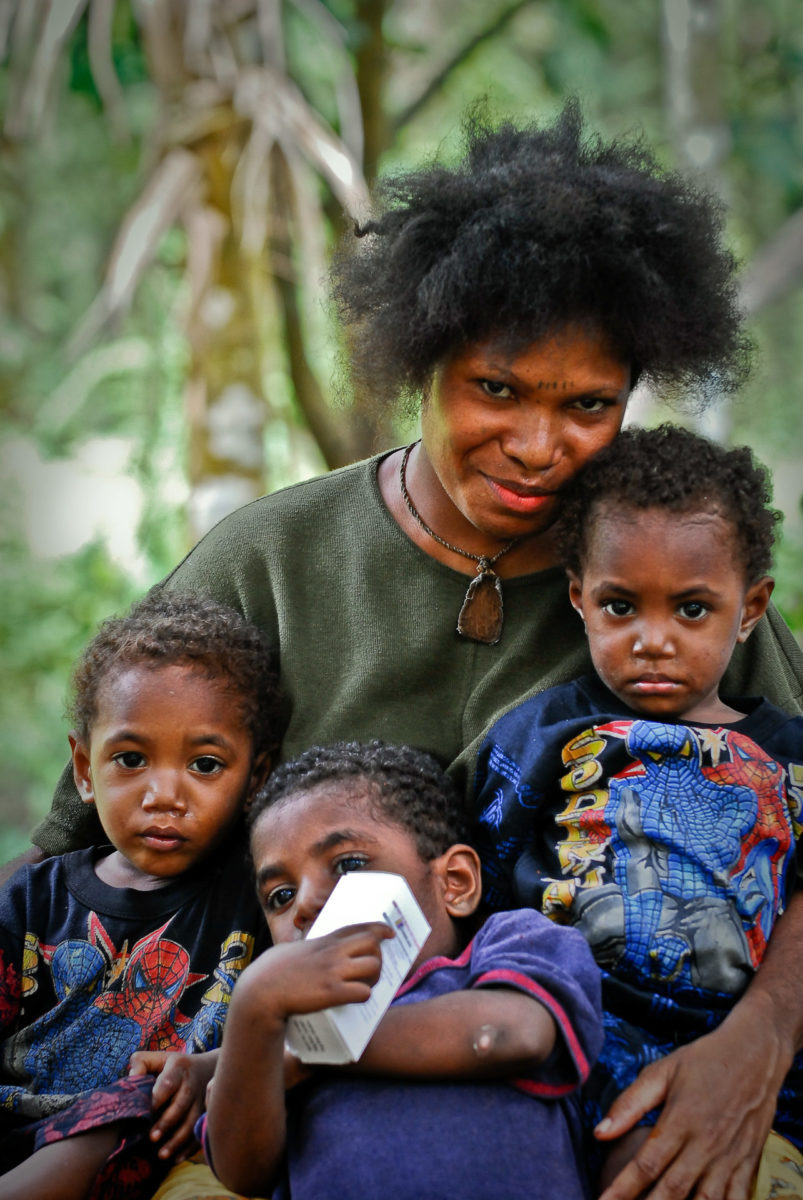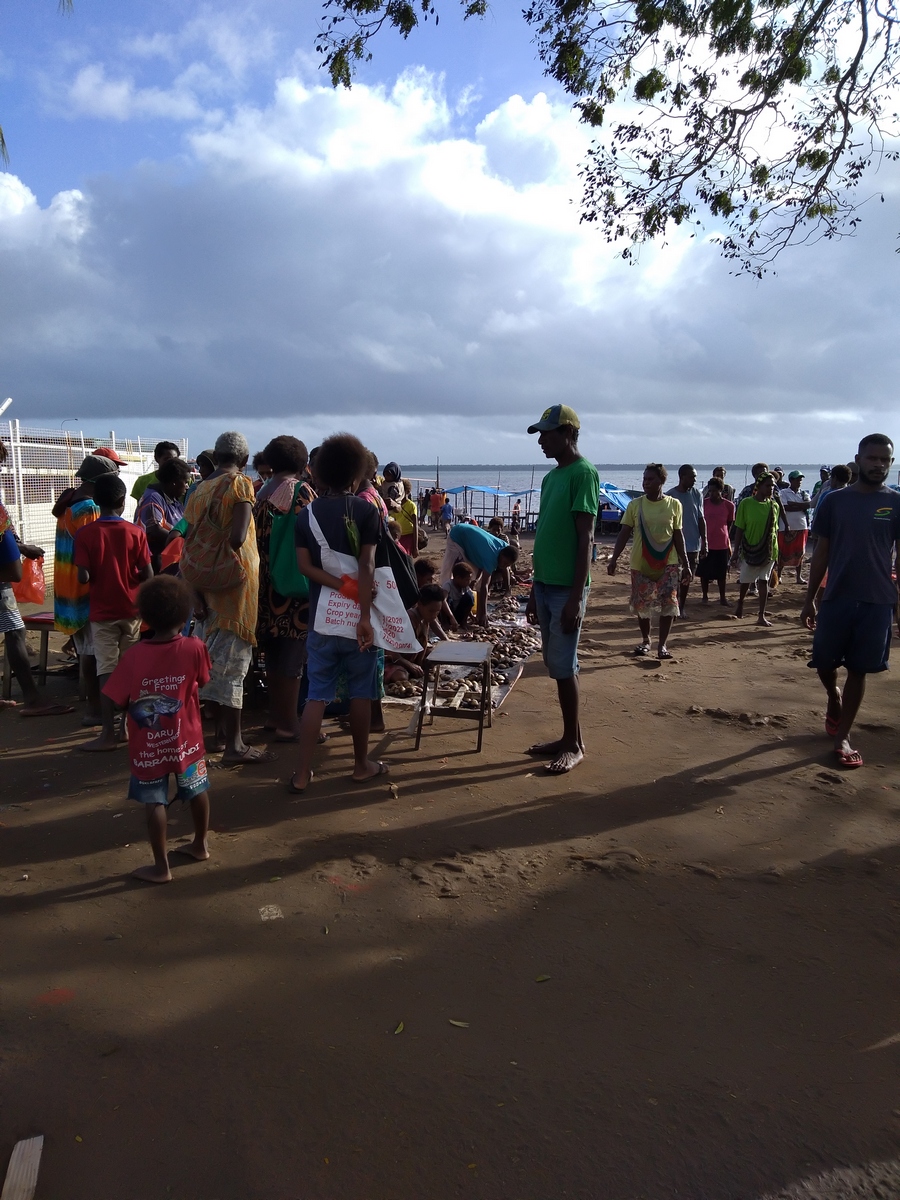Into the room walked a group of tall and muscular men. They offered their hands in greeting, the skin on their palms rough and calloused from years of working at sea. These fishermen from the South Fly coast were in Daru to sell their catch. They were also here for a Gender Equity and Social Inclusion (GESI) and Social and Environmental Standard (SES) interview. When asked where all the women fishers were, the men responded that they do not allow their womenfolk to travel on rough seas to sell fish in town.
South Fly, like many other parts of Papua New Guinea (PNG), is a patrilineal society; men dominate many aspects of life, while cultural norms put women second. This can be seen in the artisanal fishery sector of South Fly, where men are found in most links of the fishery supply chain, while women are typically involved only in gear preparation and selling of fish at market, or in less labour-intensive fishery activities like trapping mud crabs. Minority social groups are a rarity in South Fly.
“I heard about a few people like that in Daru, but I have not seen one,” said one of the interview participants when asked about the LGBT (lesbian, gay, bisexual and transgender) community. “There are none in the village,” he added. Similar responses were heard from other participants, many of whom were male. All identified themselves as heterosexual members of the indigenous ethnic majority. No other minority social groups were represented.


Slowly but surely, male domination of the fisheries industry in South Fly is changing. This is because women are becoming better educated and more involved in family matters, while also taking a more prominent role in the fisheries that form a basis for the majority of livelihoods in South Fly. As local women benefit from improved access to education, so too do their families; during the GESI and SES survey, many male interviewees noted that women manage the household better, especially in terms of finances. Although men are generally more active in the fishing industry, the critical role that women play is becoming more widely recognised.
Unfortunately, changes to the environment are less readily acknowledged in South Fly, nor fully understood. Although there are many environmental issues impacting villages in the region, these issues are not seen as a major concern. One issue that is becoming increasingly common is unusually high tides, which can result in flooding and erosion. About half of the interviewees recognised that issues like coastal flooding and erosion are due to sea level rises caused by climate change, while the others either had no idea or believed these phenomena to be supernatural in nature.
The GEF/UNDP/PEMSEA ATSEA-2 has been promoting gender equity and social inclusion in South Fly. While encouraging equal participation in its implementation, the project will engage both men and women and include other socially disadvantaged groups. With the population becoming more educated, women are able to participate more equitably in their traditionally male-dominated society. This progress is seen in the fisheries sector of South Fly and has been confirmed by participants of the GESI and SES survey.
This project has demonstrated the importance of education to gender equity and inclusion. The same approach must now be applied to environmental standards and the awareness of climate change in the region. Part of the ATSEA-2 Programme implementation will involve training and capacity building; subsequent projects will conduct environmental awareness activities as part of training on fisheries management and environmental conservation.
(Kenneth Yuanjhe)


